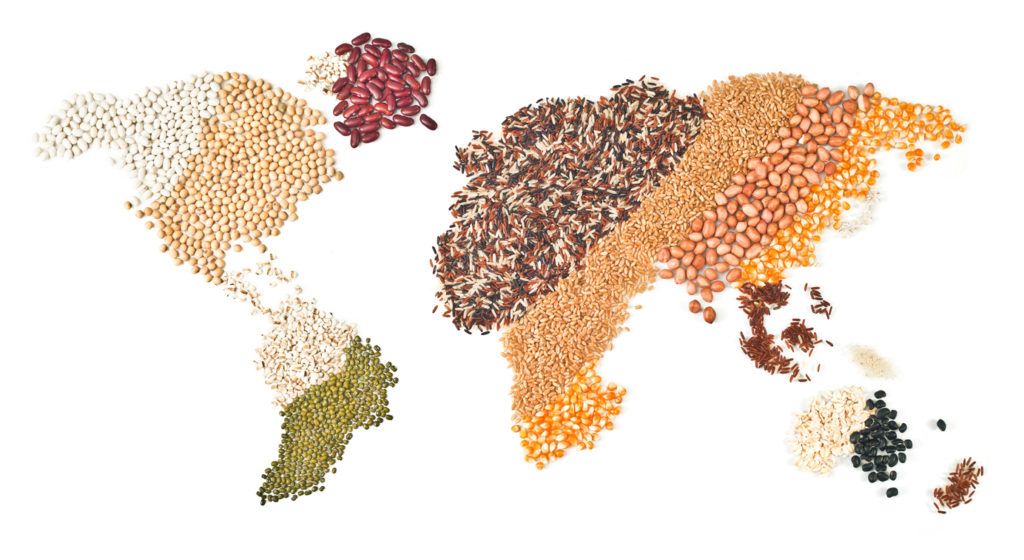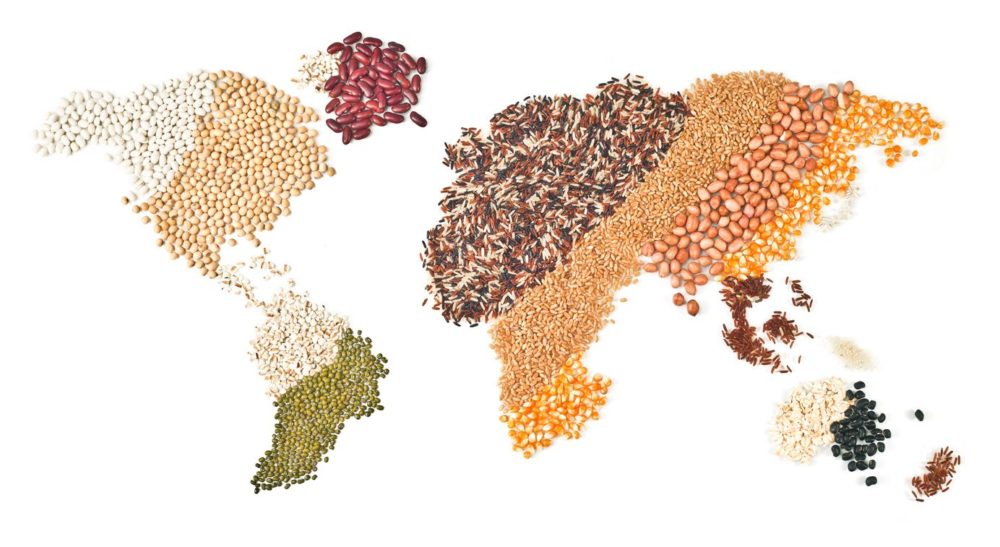Sharon Cittone is founder and CEO at food sustainability consultancy Edible Planet Ventures, based in Milan, Italy. The views expressed in this guest article are the author’s own and do not necessarily represent those of AFN.
As we watch events unfold around the world, it’s impossible to deny that our global food system has been put under tremendous pressure. Extreme heat waves in North America, deadly monsoon seasons on the Indian subcontinent, and the continuing force of a worldwide Covid-19 pandemic are all directly attributable to, and have had profound consequences on, our food chain.
They are only a few examples of the threats that we face. Wildfires have led to the destruction of farmlands and the Covid-19 emergency has caused significant disruptions in global food distribution. Waste has become even more problematic in the past year, with food worth nearly $1 trillion discarded while nearly 1 billion people suffer from malnutrition globally. While consumer behavior in the global North reflects a trend towards healthier and plant based options, food deserts are growing in wealthy countries, with a disproportionate impact on minority and low income populations.
Clearly, our global food system has undergone a profound stress test. In large part, it has failed.
These may seem like daunting and even insurmountable challenges. But there is so much that we can do to strengthen, and indeed transform, our global food system into something more resilient and more equitable. However, half measures will not work; if the world’s food supply is made insecure by climate change, food waste, and inequality, then no part of it is invulnerable until the entire system is protected.
In practice this means developing a collaborative ecosystem for agrifoodtech that builds on horizontal connections between stakeholders around the world, whose skill sets and expertise complement, rather than compete with, each other. We all have the same goal of creating a better world for future generations; but until we adopt a systemic approach that embraces the planet as a whole, we risk weakening all of the links that connect us.

The great benefit of a collaborative food and ag tech ecosystem is that we all share the responsibility for change, and we can all do our part to support this shift – no matter how small it may seem. If you have ever read the news and wondered how you, as one organization or company or individual, can enact meaningful change, you’re not alone. We have all wondered if we aren’t just tilting at windmills when we try to live, work, and act more responsibly: no single entity among us can undo the damage that our planet has suffered, just as no single entity bears the responsibility for getting us here in the first place. We have all made choices, whether consciously or not, and the totality of these choices has created our contemporary world. At times, the challenge makes it tempting to want to retreat into our own corners, to go ‘off grid’ and salvage what little we can of the world around us. But when we do that, we move further away from the compassion, empathy, and creativity that brings out the very best in us. And if we are truly committed to building a better global food system, we need everyone to step up together.
But what does it mean, in practice, to adopt a collaborative ecosystems approach to ‘fix’ our global food system? Collaboration is one of those words that tends to get overused, and it means everything until it often means nothing.
It is about more than getting together at meetings, conferences, or webinars to discuss challenges and then retreating to our neutral corners. Instead, we need to commit to action, and take ourselves out of our comfort zones to find solutions that go beyond our front doors. It is the task of those of us lucky enough to have resources to search for and empower voices that have historically been silenced. Young people, minorities, women, and so many others have been excluded from having a seat at the table: until we not only make room but make a concerted effort to level the playing field, we are all at a disadvantage.
Similarly, we must confront our global challenges with strategies that link local to global – and back again. If a great solution in one country or community could be adapted someplace else, why not help to scale it? Why not create a model that uses all of our knowhow and connections to solve problems, work on projects, and create the most impact? Why not make a point to interact with people with different expertise and geography to gain even more knowledge?
Our parent company AgFunder has launched an impact fund. Find out why
We need to start thinking bigger and bolder about what it means to foster collaboration and synergy between individuals, organizations, companies, and institutions. If we do, we have a real opportunity to transform our global food system from the ground up.
The Edible Planet model is based on this belief – that stakeholders throughout the global food chain need to go beyond the silo mentality that has held back systemic change for too long. Instead, we have created a holistic, inclusive platform to share the knowledge, resources, and best practices that we need to imagine a better global food system. The project rests on two objectives, which are independent but also interdependent: uniting ecosystems and accelerating innovation. By bringing as many people together from all corners of the world we create a true marketplace for ideas, where we can test and trial the best solution based on its potential contribution to our growing needs as a growing planet. Making everyone part of the effort allows us to combine our respective talents and expertise into a connective tissue that can and will form the basis for a new global food system.
It may sound like a tall order, and if we try to go it alone it may well be an impossible dream. But there is strength in numbers. If history has taught us anything it is that if we unite, cooperate, and collaborate, we can meet the challenges of a changing world. The current crisis does not have to be our final chapter. Instead, let’s see it as the opportunity to write a new chapter in our collective history, one where each of us has a part to play and no one is left in the margins.





